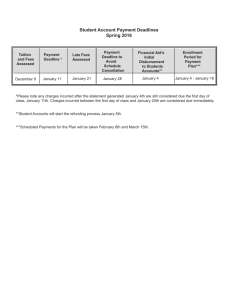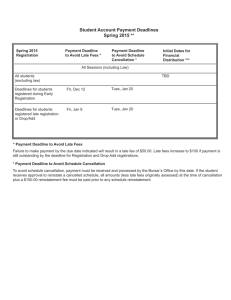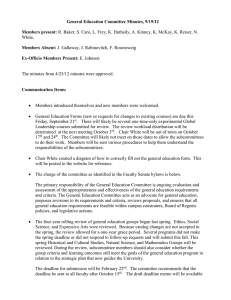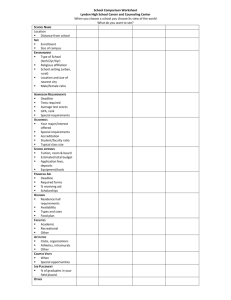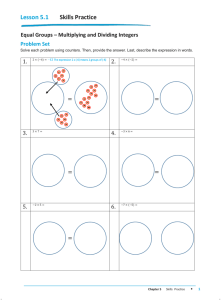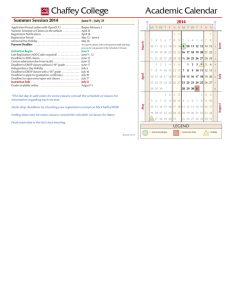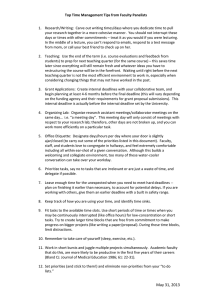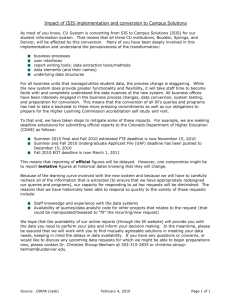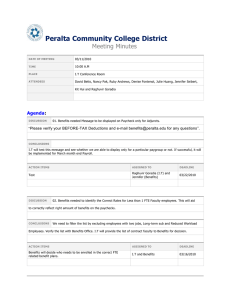CISC/CMPE-365 Fall 2015 Week 5 Congratulations! You have been
advertisement
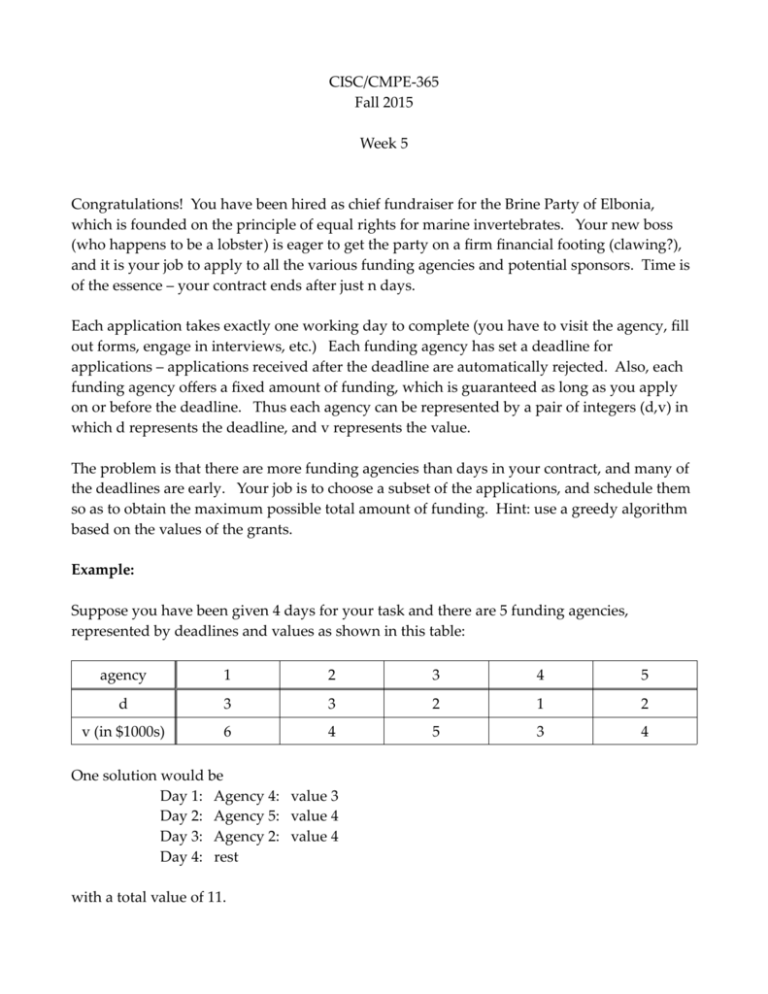
CISC/CMPE-365 Fall 2015 Week 5 Congratulations! You have been hired as chief fundraiser for the Brine Party of Elbonia, which is founded on the principle of equal rights for marine invertebrates. Your new boss (who happens to be a lobster) is eager to get the party on a firm financial footing (clawing?), and it is your job to apply to all the various funding agencies and potential sponsors. Time is of the essence – your contract ends after just n days. Each application takes exactly one working day to complete (you have to visit the agency, fill out forms, engage in interviews, etc.) Each funding agency has set a deadline for applications – applications received after the deadline are automatically rejected. Also, each funding agency offers a fixed amount of funding, which is guaranteed as long as you apply on or before the deadline. Thus each agency can be represented by a pair of integers (d,v) in which d represents the deadline, and v represents the value. The problem is that there are more funding agencies than days in your contract, and many of the deadlines are early. Your job is to choose a subset of the applications, and schedule them so as to obtain the maximum possible total amount of funding. Hint: use a greedy algorithm based on the values of the grants. Example: Suppose you have been given 4 days for your task and there are 5 funding agencies, represented by deadlines and values as shown in this table: agency 1 2 3 4 5 d 3 3 2 1 2 v (in $1000s) 6 4 5 3 4 One solution would be Day 1: Agency 4: value 3 Day 2: Agency 5: value 4 Day 3: Agency 2: value 4 Day 4: rest with a total value of 11. However, a better solution would be Day 1: Agency 2: value 4 Day 2: Agency 3: value 5 Day 3: Agency 1: value 6 Day 4: rest with a total value of 15. Input and Output Input to your program consists of a sequence of lines, each containing 2 integers: On the first line, the first integer is n, the number of days in your contract. The second integer is m, the number of funding agencies. The m following lines contain a d value and a v value, in that order. The lines representing the agencies are in no particular order. The input for the example problem above would be 4 3 3 2 1 2 5 6 4 5 3 4 Output should be a presentation of the planned schedule and the total value, something like the solutions shown above (only the best solution need be reported, of course).

